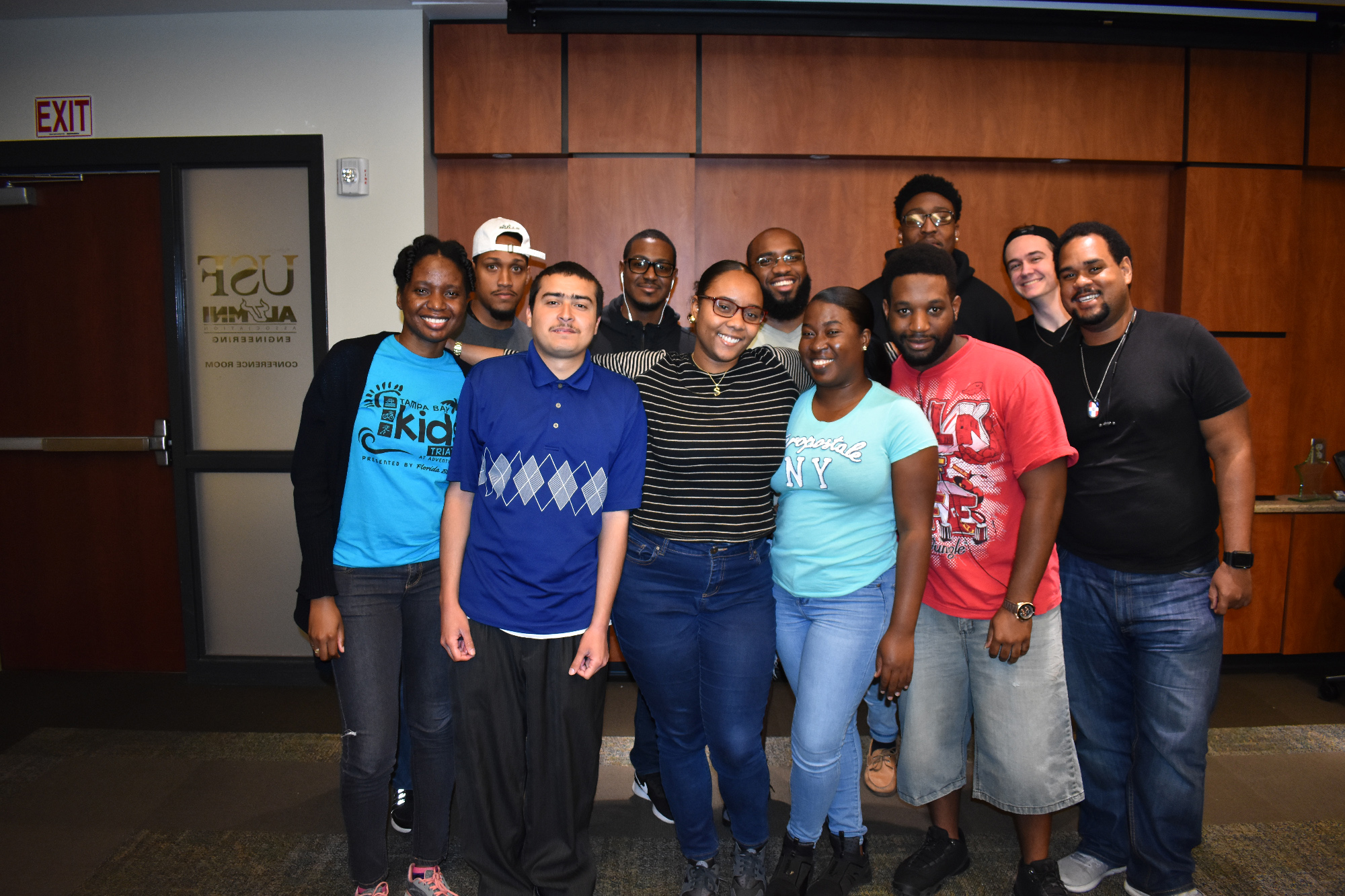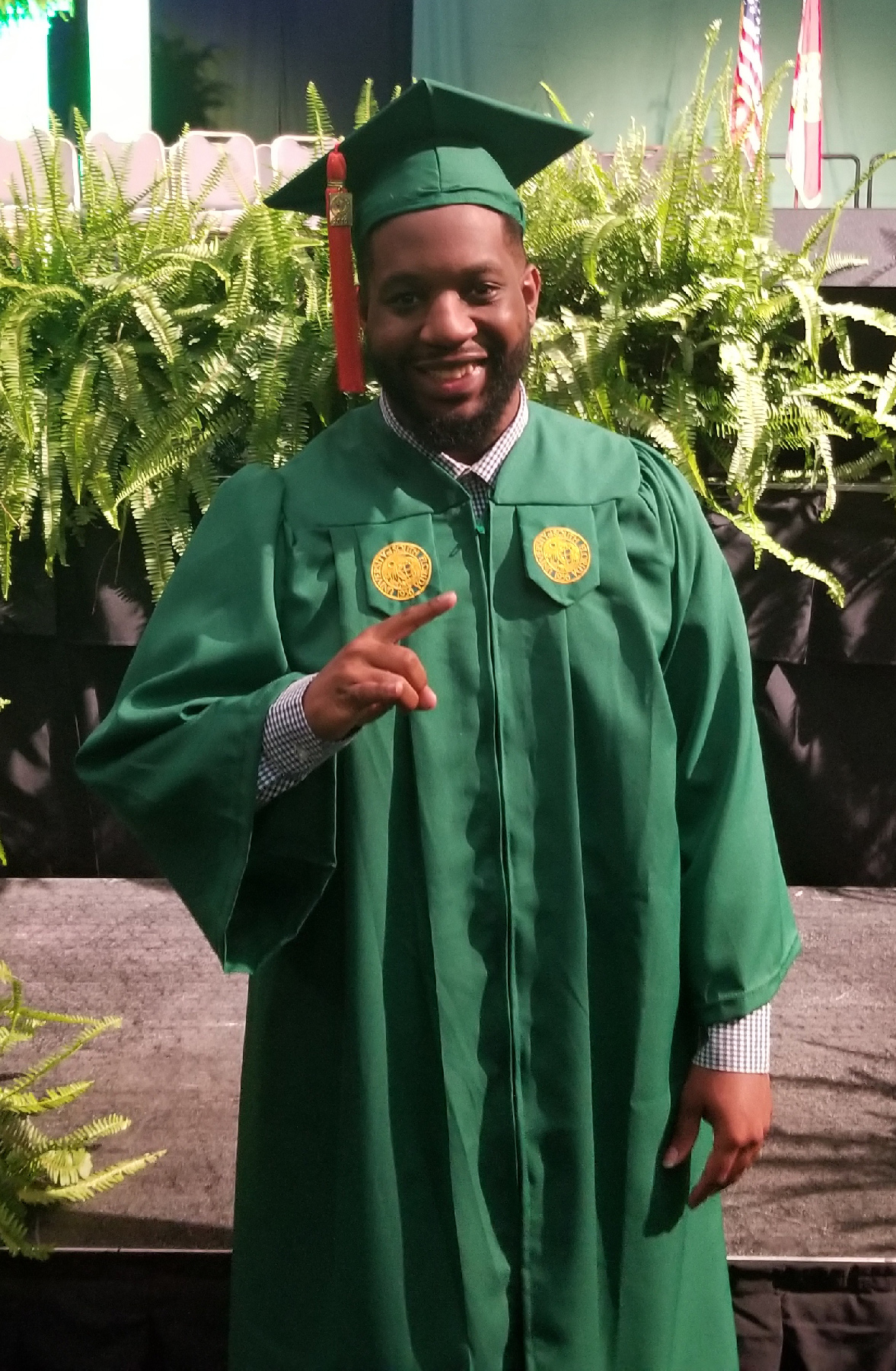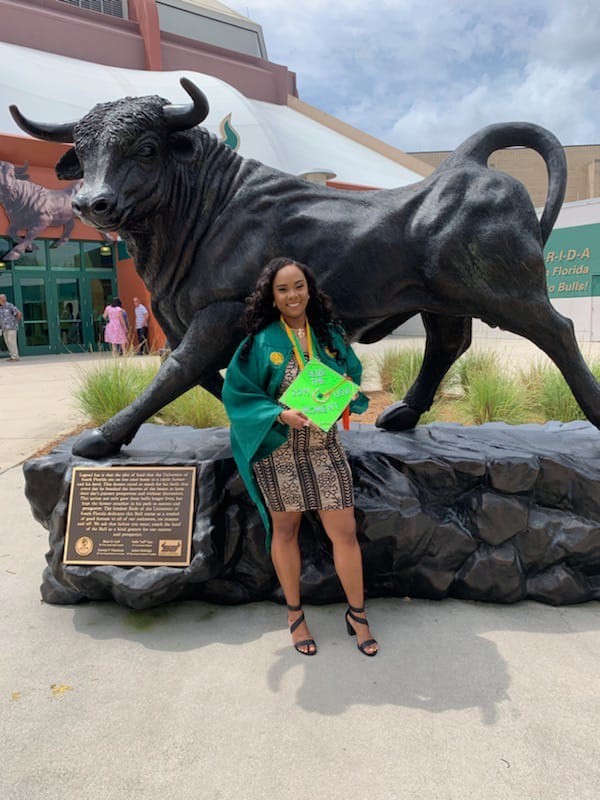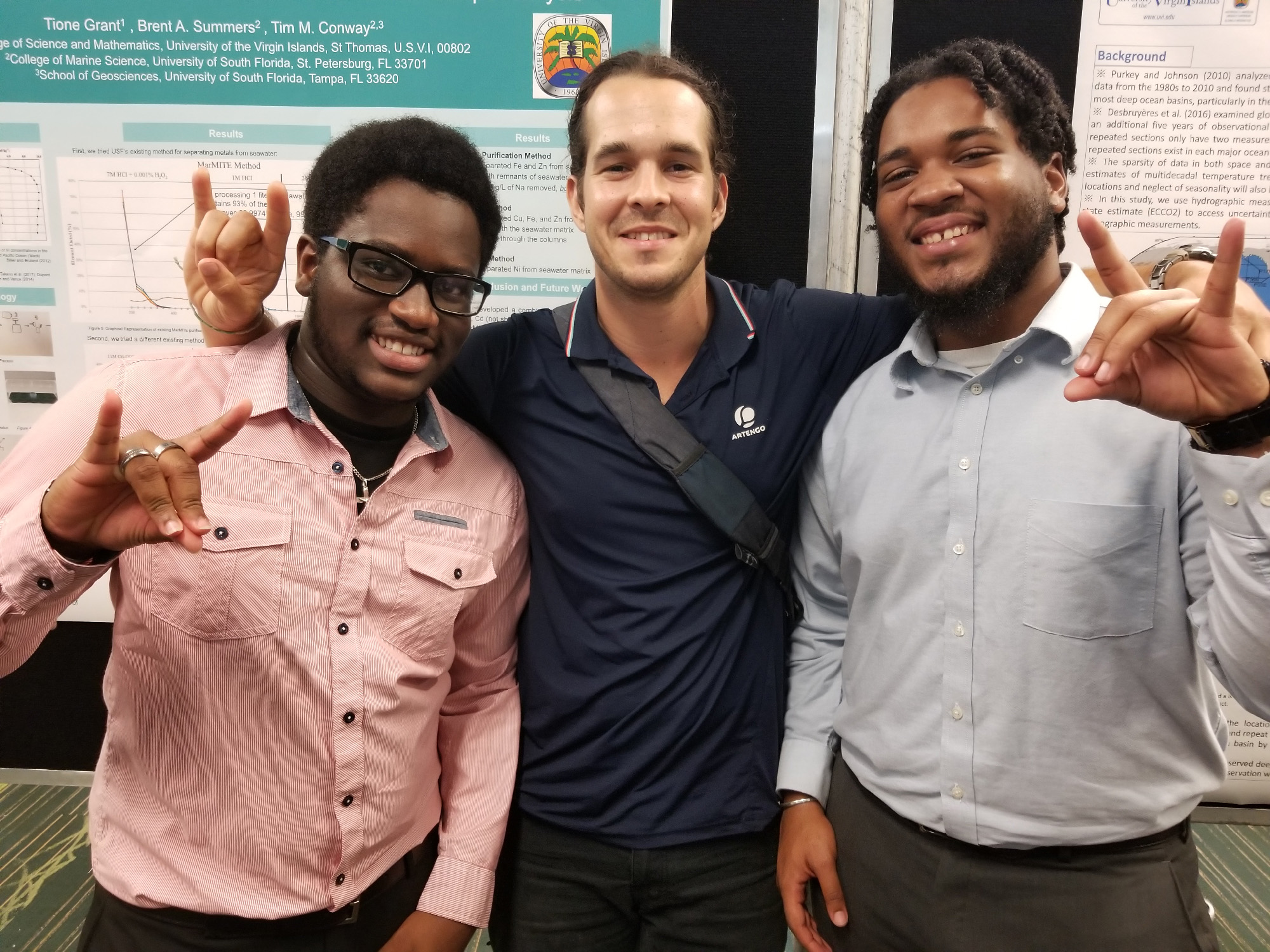College of Engineering News Room
Relationship Between USF and UVI Expands Access to Engineering Education for Diverse Students and Develops Inclusive STEM Workforce
By Brad Stager
A unique partnership between the University of South Florida College of Engineering and the University of the Virgin Islands (UVI) is demonstrating the importance of partnerships with minority-serving institutions in fostering a more diverse and inclusive engineering workforce.
This articulation agreement between UVI, a Historically Black College and University (HBCU), and USF enables UVI students in the Bachelor of Science in Applied Mathematics program to pursue their engineering dreams at USF’s College of Engineering.
Eligible UVI students can transfer into the civil, chemical, computer, electrical, industrial, or mechanical engineering programs at USF. Then, after three years, the students may earn both their bachelor's in applied mathematics from UVI and their bachelor's in engineering from USF.
The agreement was a broadening participation outcome of the NSF Partnerships for International Research and Education (PIRE) award, the largest NSF grant to USF, led by Professors James Mihelcic and Maya Trotz in the Department of Civil and Environmental Engineering. Since the agreement’s inception in 2014, 36 students from the US Virgin Islands have enrolled at USF with 20 completing their STEM degrees.

For Tonya Bartlette, earning her Bachelor of Science in Civil Engineering from USF, as well as her bachelor's in applied mathematics from UVI, became the means of channeling both her project management skills and desire to improve the society she was developing while working at a bank.
“I chose civil engineering because I wanted to be able to give back to my community and make life easier for people,” Bartlette said.
She is now manager of the Nevis Water Department, St. Kitts-Nevis and is the first woman to be selected to that position. Bartlette says the partnership between USF and UVI played a critical role in her professional success, and she specifically cites the peer support at USF as well as its strong academics as important factors in her experience.
“USF helped me to grow and develop personally and has paved the way for me and to realize what I really want to do in life and how I want to make an impact,” she said.
Bartlette, who is now pursuing her master’s degree in Natural Resource and Environmental Management at the University of the West Indies, says her USF peers and advisors were instrumental in keeping her on the right path.
“Find persons you can start study groups with, share and brainstorm ideas with, as this will help in advancing your educational and professional goals,” she said.
Another recent graduate, Jamoi Armstrong, earned his Bachelor of Science in Electrical Engineering at USF in 2019, and is now working on airborne platforms. As a Boeing Instrumentation Engineer, he is helping to keep F-18 jets technologically sharp for the U.S. Department of Defense. Armstrong cites extensive resources at USF, such as the Mini Circuits Design for X Laboratory that provides access to technology like 3D printers, a CNC mill and workbenches outfitted for academic and recreational engineering as being helpful in his learning.
“I could work on projects independently,” he said. Armstrong plans on going into management and adds that the opportunity to work with students from other engineering disciplines in the lab helped broaden his knowledge and skills.

Beyond the academic resources, Armstrong is grateful for the on- and off-campus networking opportunities at USF that enabled him to hone his interviewing skills and connect with technical professionals.
With support from the College of Engineering’s Florida-Georgia Louis Stokes Alliance for Minority Participation (FGLSAMP) program, “I attended the Black Engineer of the Year (BEYA) conference in 2018," he said. "Overall, it was a tremendous experience (my first time in Washington, DC), and I interviewed with hiring managers at NASA, The Aerospace Corporation, and for my current position with Boeing.”
It’s a northwestwardly, four-hour flight across the Caribbean from St. Thomas to Tampa, but navigating the differences between the smaller campus of UVI and the larger, more populated USF Tampa campus can magnify similarities, according to Sherika Jacobs, who earned her Bachelor of Science in Civil Engineering at USF and is now a project manager at the Virgin Islands Water and Power Authority.
She credits her mentors - Bernard Batson, Director of Engineering Diversity Programs, Professor Maya Trotz, CEE PhD graduate Wainella Isaacs and others - at USF for ensuring UVI transfer students had the support they needed to succeed.
“They pushed us to apply for scholarships and conference opportunities,” Jacobs said.
One highlight of Jacobs' experiences was a scholarship award to the 2018 WEF InFLOW (Introducing Future Leaders to Opportunities in Water) program in New Orleans. WEF InFLOW aims to enhance diversity and inclusion in the water workforce. As a result of being in the program, she received an internship at Arcadis in Tampa.
Jacobs said “it was one of the most interactive conferences I've ever attended. The community engagement, professional development, and networking activities motivated me even more to continue working towards becoming a practicing, licensed civil engineer making strides in the water industry.”

In her current position, Jacobs is responsible for managing a variety of engineering projects and is gaining broad experience. She says her future goals include focusing on providing water resources to communities who are lacking them, an interest she developed at USF.
“In my senior year I realized how interested I am in water systems when Dr. Sarina Ergas’ class completed a water infrastructure project," she said. "She made the class really interesting and it was so practical.”
The USF-UVI articulation agreement provides a pathway to the engineering profession for eligible students from an institution lacking an accredited ABET program with the goal of fostering a diverse talent pool of technical leaders for the national and international STEM workforce.
In addition to advising and mentoring, eligible UVI students have been assisted with College of Engineering book scholarships to qualify for in-state tuition and undergraduate research opportunities that connect them with faculty and graduate student mentors.
College of Engineering Dean Robert Bishop said that “the USF-UVI partnership and nurturing other reciprocal collaborations with minority-serving institutions and community colleges are foundational components of the College of Engineering’s Diversity, Equity, and Inclusion (DEI) Plan.”

To this end, in 2017, he committed to the ASEE Deans Diversity Pledge. This pledge, now signed by 220 of ASEE’s 330-member engineering colleges, commits signatories to engaging in signature DEI activities, such as developing strong partnerships between research-intensive engineering schools and non-PhD granting schools, such as UVI, which primarily serve populations underrepresented in engineering.
Aside from fostering a pipeline to enhance student diversity, the reciprocal partnership between the College of Engineering and UVI extends to signature research awards, including the PIRE grant (2013-2019) and the National Science Foundation Research Traineeship (NRT) Strong Coasts project, led by Trotz, that aims to study and promote ways to develop innovative, community-engaged solutions in coastal communities.
Last year, the college received an ASEE Bronze Level award (the highest award given that review cycle) that recognizes the college’s commitment to establishing outreach programs and initiatives that reduce the significant barriers to underrepresented minorities (URM) and women in engineering.